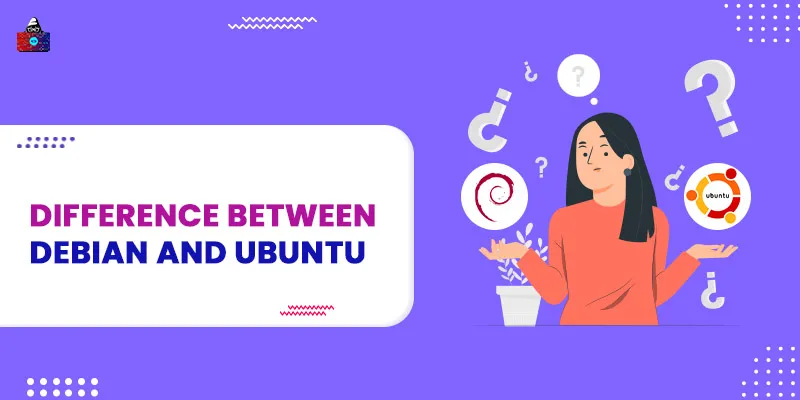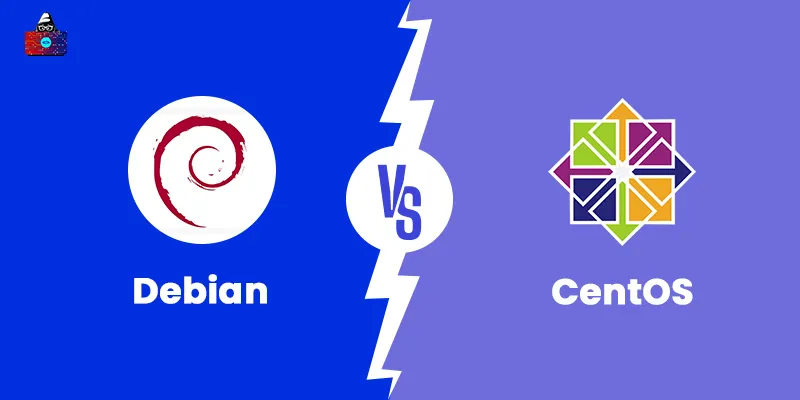A key problem that people may have while opening a new website (and choosing a server) is deciding which operating system to employ. Concerning the same, there are several options, so deciding on just one might be difficult. A user must evaluate several server OSs to find one that meets their needs. Two of the popular options are Debian and Ubuntu. In several ways, Debian and Ubuntu systems are nearly identical. But there are some differences too. So, let us compare Debian and Ubuntu.
What is Debian?
Debian is among the most popular Linux-based operating systems. Its initial version was developed in 1993. Since then, it has progressed a lot. Debian is best recognized for its high reliability and unwavering dedication to open-source utilities. It is also completely controlled by the audience. Many successful variants based on Debian have emerged throughout time, adhering to its robust reliability and accessibility norms.
What is Ubuntu?
Ubuntu is another very successful Linux-based operating system. Canonical is the organization that supports Ubuntu. They are responsible for its development and implementation. An intriguing aspect is that Ubuntu is based on Debian, which explains why so many fundamental concepts are shared among the two popular Linux distributions. Ubuntu grew in popularity as a result of the new and modern amenities that it began to offer. Furthermore, with backing from Canonical, Ubuntu could devote a significant amount of work to enhancing the customer experience.
Difference Between Debian and Ubuntu
Since it is mainly a business server system, Debian has a significantly slower release timetable. Reliability is the best strategy, and that they will undoubtedly trade thrills and buzzers for all of it. Ubuntu is tailored primarily for the PC, and therefore, it attempts to remain as up-to-date as possible. It is utilized for commerce and PCs, thus, it is not typically utilized for research and testing. Ubuntu continues to seek steadiness, but not at the expense of growth. It even includes a delayed route for the server market.
-
Server and Release
The primary difference between these 2 operating systems is how they are managed. Debian is becoming increasingly equivalent to Ubuntu, though the two are not identical. Instead, each server model does have its array of distinctions. Debian will not provide traditional releases like Ubuntu. Instead, Debian will provide live streaming of the launch. The appropriate operating system, for example, enables users to download upgrades and software. Users can update to the forthcoming latest version without rebooting respective PCs.
-
Protection Structures
Ubuntu has a higher level of security than Debian. Debian is seen to be a considerably more reliable and manageable technology than Ubuntu. Debian does have a history of becoming more reliable in conversations across many systems. An Ubuntu server may also have a few loopholes that a Debian system does not. Nonetheless, both Ubuntu and Debian are extensively used across the globe.
-
Package Administration
Both Ubuntu and Debian employ the very same suitable application software management program but offer a separate collection of software repositories. Debian is more concerned with encouraging the opportunity to choose open-source software, hence, it does not provide any proprietary technology by default. You may always download the premium version, but you should individually activate that. Ubuntu emphasizes accessibility across all applications, encompassing free, premium, restricted products, and so on. A universal version management solution was also developed by Ubuntu. It will be utilized throughout all emulators, preventing further distro-based software segmentation. It is currently available in Debian repositories.
-
Compatibility with Software
Almost all of the time, the software sources run well on both systems with few or no adjustments. However, you might have to update the Debian package to meet the requirements in many cases. Furthermore, Ubuntu has its packaging mechanism called PPA via Launcher, which does not function on Debian. Ubuntu has created Snap , a global package management program that is also accessible in the Debian repository.
-
Firmware and Driver
Debian, as one might assume, does have some issues regarding adapters and firmware. There are no commercial files in the Debian core. This implies that it doesn't come with a lot of programming by design. You must allow the source and download it directly, just as you would with any other program. Ubuntu contains enough firmware as feasible and attempts to configure and manage your drivers for customers properly. Ubuntu also collaborates with hardware vendors to approve devices and test drivers for compatibility with Ubuntu.
-
Corporate Support
Debian is a community-driven system. It is administered by an appointed council of directors that has its organizational structure as well as its own set of rules. Almost everyone who works on Debian is a volunteer. Nevertheless, Canonical, the company behind Ubuntu, is a for-profit venture. Canonical maintains Ubuntu with other infrastructure programs, and they have complete control over this and all Ubuntu-related choices. There is also a huge benefit to this. Canonical coordinates the work of Ubuntu, negotiating interoperability agreements with hardware companies and even having Ubuntu installed on, for example, Dell PCs.
Conclusion
Ubuntu and Debian are nearly identical, yet they also contain substantial variations. Ubuntu is more user-friendly, and it has a greater business aspect to it. Debian, on either side, cares more about software liberty and alternatives. It's just a non-profit initiative, and it has a non-profit atmosphere as well. Regardless of what you select, you will not struggle since both Linux distributions are comparably reliable, safe, and capable of meeting all the general customer expectations.
People are also reading:




Leave a Comment on this Post